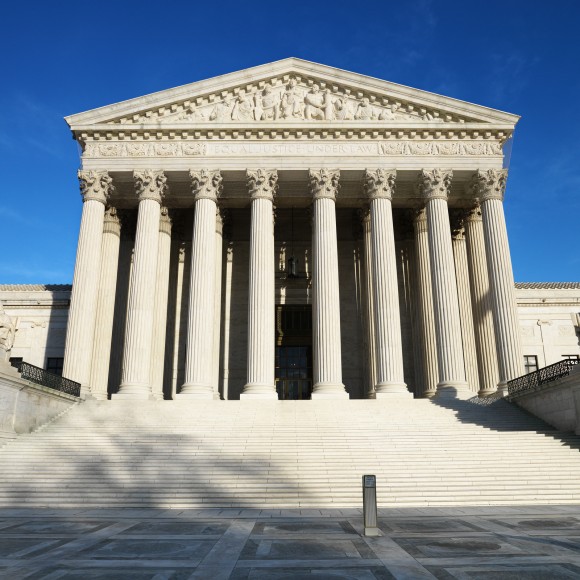The U.S. Supreme Court will consider giving businesses a new tool to thwart class action lawsuits, agreeing to decide whether a defendant can end a case by offering full payment to the lead plaintiff.
The case helps shape the next Supreme Court term as a major opportunity for companies to shield themselves from consumer lawsuits. The court, which under Chief Justice John Roberts has taken a skeptical view of class action litigation, will also consider a consumer-protection dispute accepted last month. The court will rule in both cases by June 2016.
In the new case, the justices will hear an appeal by Campbell-Ewald Co., a marketing firm facing what it says are hundreds of millions of dollars in potential damages for sending automated text messages. Campbell-Ewald, a unit of the Interpublic Group of Cos., sent the texts as a part of a contract to help the U.S. Navy with recruiting.
Jose Gomez sued, saying he received multiple messages without his consent in violation of the U.S. Telephone Consumer Protection Act, a law that authorizes damages of up to $1,500 per unauthorized text. The suit sought class action status on behalf of as many as 100,000 people who received the messages.
Campbell-Ewald then sought to resolve the case by offering to pay Gomez $1,503 for each message he received. Although Gomez declined, the company says the case is legally moot and should be thrown out because he has been offered everything to which he might be entitled.
The case revolves around the 1991 law that businesses say has become a magnet for abusive class action litigation.
‘Extortionist Weapon’
The Telephone Consumer Protection Act “has become an extortionist weapon in the hands of class action attorneys seeking to extract lucrative attorneys’ fees for class-wide settlements,” the company argued. The U.S. Chamber of Commerce joined Campbell-Ewald in asking the Supreme Court to step in.
Gomez’s lawyers urged the court not to hear the case, saying business advocates should take their arguments to Congress.
“This court should not allow serial violators to escape suits claiming damages authorized by law for thousands of violations by merely offering to pay a nominal sum for a handful of violations,” Gomez argued.
The court last month agreed to decide whether Congress can authorize lawsuits by people who haven’t suffered any concrete harm, in a case that could affect a number of federal consumer- protection statutes.
The case involves Spokeo Inc., a company that uses public information to compile personal dossiers. Spokeo is fighting a suit by a man who it says wasn’t harmed by inaccuracies in the company’s report on him.
The new case is Campbell-Ewald v. Gomez, 14-857.
Was this article valuable?
Here are more articles you may enjoy.



 AIG’s Zaffino: Outcomes From AI Use Went From ‘Aspirational’ to ‘Beyond Expectations’
AIG’s Zaffino: Outcomes From AI Use Went From ‘Aspirational’ to ‘Beyond Expectations’  Experian Launches Insurance Marketplace App on ChatGPT
Experian Launches Insurance Marketplace App on ChatGPT  AI Claim Assistant Now Taking Auto Damage Claims Calls at Travelers
AI Claim Assistant Now Taking Auto Damage Claims Calls at Travelers  Viewpoint: Runoff Specialists Have Evolved Into Key Strategic Partners for Insurers
Viewpoint: Runoff Specialists Have Evolved Into Key Strategic Partners for Insurers 

